Energy
Texas Legislative Committee Proposes Ways to Protect, Expand LNG Industry
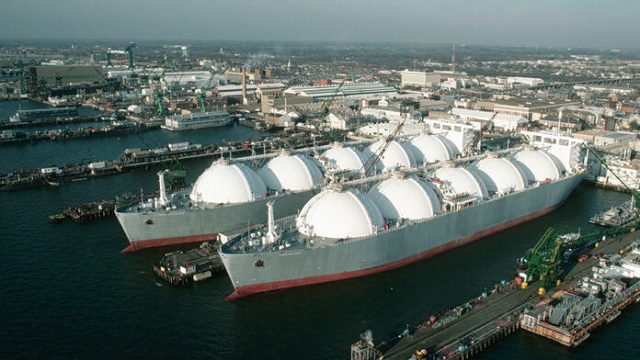
From Heartland Daily News
By Bethany Blankley
“the Biden Administration’s federal permitting pause during a presidential election year appears to be purely political in nature and an attempt to disrupt Texas’ booming economy, now the eighth largest economy in the world…. it is abundantly clear American LNG is in the best interest of the Texas economy, local communities, our national security, and global energy security.”
A state legislative committee is proposing ways to expand Texas’ liquified natural gas (LNG) industry after the Biden administration announced it was pausing pending applications for LNG exports that would significantly impact Texas.
The Texas House Select Committee on Protecting Texas LNG Exports issued its findings after holding a hearing on the topic earlier this month. Led by state Rep. Jared Patterson, R-Frisco, the report states, “the Biden Administration’s federal permitting pause during a presidential election year appears to be purely political in nature and an attempt to disrupt Texas’ booming economy, now the eighth largest economy in the world.
“It has caused long-term uncertainty for both investors and allied nations around the world relying on American energy, particularly in Europe as they seek to wean themselves off Russian natural gas. After multiple studies across Democratic and Republican presidential administrations, it is abundantly clear American LNG is in the best interest of the Texas economy, local communities, our national security, and global energy security.”
House Speaker Dade Phelan, R-Beaumont, created the select committee and charged it with evaluating the impact on the Texas LNG industry and to propose actions the state legislature could take in the next legislative session to protect it.
Phelan’s district is critical to the oil and natural gas industry. It encompasses a region known as the “Golden Triangle,” rich in oil and natural gas production, processing, refining and exports in the southeast towns of Beaumont, Port Arthur and Orange. It includes a key LNG export terminal currently under construction in Port Arthur, where several LNG facilities are also located.
The LNG terminal, once completed and operational, is expected to have an export capacity of 13 million tons a year. With access to the Gulf of Mexico through the Sabine-Neches ship channel, it represents a $13 billion investment in new energy infrastructure, the report states.
The U.S. leads the world in LNG exports, led by the Gulf states of Texas and Louisiana. In 2017, the U.S. became a net exporter of natural gas for the first time since 1957, “primarily because of increased LNG exports,” according to the EIA. The U.S. became a net exporter after Cheniere Energy was the first to export domestically sourced LNG from the Sabine Pass LNG Terminal in Cameron Parish, Louisiana, and from the Port of Corpus Christi in Texas, The Center Square first reported.
Nearly 25% of U.S. natural gas reserves are located in Texas and 30% of the largest hundred natural gas fields in the U.S. are in Texas, the legislative report notes, citing state data. It also identifies six LNG facilities nationwide that would be impacted by the ban, including two in Texas, in Port Arthur and Corpus Christi.
Texas ports, including Port Arthur and Corpus Christi, are among the top ports in the U.S. leading in foreign trade impact, and the Port of Corpus Christi continues to break records in tonnage, primarily due to oil and LNG exports, The Center Square reported.
Texas Oil & Gas Association Chief Economist Dean Foreman, who testified before the committee, said, “Texas and Louisiana bear the brunt of short-sighted federal policies that jeopardize LNG export projects, representing potential investments of $200 billion across the value chain, including a projected 20% increase in Texas’ dry natural gas production.
“The reasons given for this pause – concerns about higher domestic natural gas prices, emissions, and community impacts – are clearly unfounded. U.S. LNG exports have responded to global demand, driving domestic innovation that enhances productivity and reduces consumer costs. LNG has replaced coal in power generation, emerging as a primary driver of emission reductions, and have catalyzed economic growth across the Gulf Coast. On all accounts, U.S. LNG exports have proven to be decisively beneficial.”
Two key claims the administration made for implementing the ban (LNG exports increase domestic energy costs and increase methane emissions) have been refuted, The Center Square first reported. A bipartisan coalition of Texas’ congressional delegation called on the president “to refocus on policies that support US LNG,” understanding that Texas is the energy capital of the United States, The Center Square reported. Sixteen states, led by Louisiana and Texas, also sued, arguing the ban is illegal.
The committee recommended that the legislature “consider legislation and policies authorizing the governor to develop and execute an interstate compact with the goal of sharing state information, resources, and services with other interested states seeking to protect and grow the LNG industry along the Gulf Coast.”
It also recommends that the legislature propose legislation and policies to permit temporary eligibility of LNG facility construction grants and loans when federal permitting pauses occur; provide economic incentives for LNG facilities to counter market consequences of a federal permitting pause; reform specific permitting regulations and increase overall permitting process efficiency; expand funding for project construction and development through the Texas Department of Transportation’s Maritime Infrastructure Program; increase workforce grants made available through local colleges to meet workforce demands for construction and facility operations; and mandate that official reports be published every year providing data on the “relevance and importance of the LNG industry regarding the public interest.”
Bethany Blankley is a contributor at The Center Square.
Originally published by The Center Square. Republished with permission.
Alberta
Working to avoid future US tariffs, Alberta signs onto U.S. energy pact

Louisiana Governor Jeff Landry and New Hampshire Governor Chris Sununu of the Governors’ Coalition for Energy Security
Premier Danielle Smith has joined the Governors’ Coalition for Energy Security to further support advocacy of Alberta’s energy and environmental interests with key U.S. states.
The coalition was established in September 2024 by U.S. State governors Jeff Landry (Louisiana) and Chris Sununu (New Hampshire) with the aim of ensuring energy security, lower energy costs, increased reliability, sustainable economic development and sensible management of energy resources and the environment. With 12 U.S. states already signatories to the coalition, Alberta is the first non-U.S. state to enter into this agreement.
By expanding energy ties with the U.S. and promoting cross-border energy trade and participation, Alberta is helping to build upon its North American Energy strategy. Alberta already accounts for 56 per cent of all oil imports to the U.S. – twice as much as Mexico, Saudi Arabia and Iraq combined – which is helping to drive job creation and prosperity on both sides of the border. Natural gas also plays an important role in North America’s energy mix. Alberta is the largest producer of natural gas in Canada and remains positioned to support the U.S. in filling their domestic supply gaps.
“I am honoured to join the Governors’ Coalition for Energy Security and would like to extend my sincere thanks to governors Landry and Sununu for the invitation. Alberta plays a vital role in North American energy security, serving as the largest supplier of crude oil and natural gas to the United States. With 200 billion barrels of recoverable oil, 200 trillion cubic feet of recoverable natural gas, significant natural gas liquids and ample pore space for carbon capture, Alberta’s contribution is set to grow even further as we look to work with the Trump Administration and other U.S. partners to increase our pipeline capacity to our greatest friend and ally, the United States. We are proud to collaborate with this coalition of allied states in advancing energy security, reliability and affordability for Americans and Canadians.”
“Our mission as an organization has not changed but Alberta’s welcome arrival to our group sparked a conversation about what our core mission is, and that is ensuring energy security in all its forms. Our members all share the common goal of enhancing and protecting energy options for our people and businesses, which leads to lower energy costs, increased reliability, sustainable economic development and wise management of energy resources and the environment. I welcome Premier Smith and the insights she will bring as the leader from a fellow energy-producing province, that like my state, is under a federal system of government where national imperatives are not always aligned with state or provincial interests.”
Alberta is a global leader in emissions reduction technology and clean energy solutions. The province has captured about 14 million tonnes of carbon dioxide through carbon capture, utilization and storage technology, and has the ability to support the U.S. in developing new infrastructure and supply chains for future energy markets in the areas of hydrogen, renewables, small modular reactors and others.
Alberta is also unlocking its untapped geological potential to help meet the increasing demand for minerals – many of which are used worldwide to manufacture batteries, cell phones, energy storage cells and other products. This includes the province’s lithium sector where Alberta’s government is supporting several innovative projects to develop new ways to extract and concentrate lithium faster and with higher recovery rates that are less capital and energy intensive and have a smaller land-use footprint.
As part of this coalition, Alberta looks forward to sharing best practices with states that already have expertise in these areas.
Quick facts
- The U.S. is Alberta’s largest trading partner, with C$188 billion in bilateral trade in 2023.
- In 2023, energy products accounted for approximately C$133.6 billion, or more than 80 per cent of Alberta’s exports to the U.S.
- The Governors’ Coalition for Energy Security’s 12 signatory states include Louisiana, New Hampshire, Indiana (Governor Eric Holcomb), Alabama (Governor Kay Ivey), Georgia (Governor Brian Kemp), Tennessee (Governor Bill Lee), South Dakota (Governor Kristi Noem), Mississippi (Governor Tate Reeves), Arkansas (Governor Sarah Huckabee Sanders), Oklahoma (Governor Kevin Stitt), Wyoming (Governor Mark Gordon) and Virginia (Governor Glenn Youngkin).
Business
Ottawa’s emissions cap another headache for consumers and business
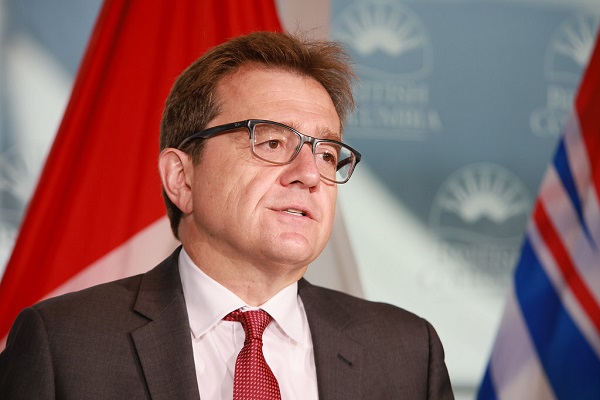
From Resource Works
Ottawa’s emissions cap for oil and gas aims to cut emissions but risks raising costs for consumers and disrupting industry stability.
Ottawa has brought down a new emissions cap for the oil and gas industry, with a mandate to reduce emissions by 35 percent from 2019 levels by 2030 to support the federal government’s climate targets. While the federal government is celebrating the cap as a big step towards a more sustainable future, it is going to make life harder for consumers and businesses alike.
This cap is coming in at a time when the oil sector is finally gaining greater stability due to the expanded Trans Mountain pipeline (TMX), and the mandate would undermine that progress and press greater costs upon households and industries that are already adjusting to high inflation and uncertainty in world markets.
Now that TMX is operational, Canada’s oil producers have grown their access to international markets, most importantly in Asia and the West Coast of the United States. Much-needed price stability now exists for Western Canadian Select (WCS), cutting the discount against the U.S. West Texas Intermediate benchmark, enabling Canadian oil to compete more effectively.
Newfound stability means that Canadian consumers and businesses have benefited from slightly lower prices, and that industry has grown less dependent on a more limited domestic demand. However, Ottawa’s emissions cap does threaten this new balance, and the sector now has to deal with compliance costs that could be passed down to consumers.
In order to meet the cap’s targets, Canadian oil producers must heavily invest in carbon capture and storage (CCS) technologies, which is costly but essential. Major CCS projects include Shell’s Quest and the Alberta Carbon Trunk Line, both of which are already operational.
The Pathways Alliance is a coalition of six major oil sands companies and is preparing to invest in one of the world’s largest networks for carbon storage. These efforts are crucial for reducing emissions, despite requiring vast amounts of capital.
Those in the industry are worrying that the emissions cap will push resources away from production and, instead, towards compliance, adding costs that will be borne by fuel prices and other consumer products.
Ottawa has portrayed the cap as an essential measure for meeting the federal government’s climate goals, with Environment Minister Jonathan Wilkinson labeling it “technically achievable.” Nonetheless, industry players argue that the timeline does not align with the practicalities of scaling CCS and other strategies aimed at decarbonizing.
Strathcona Resources executive chairman Adam Waterous pointed out the “stroke-of-the-pen” risk, in which shifting political landscapes imperil ongoing investments in carbon capture. Numerous oil producers feel that without certainty in carbon price stability, Ottawa’s cap will result in an unstable business environment that will push investment away from production.
Business leaders do not share the federal government’s optimism about the cap and see it as a one-sided approach that fails to reckon with market realities. The Pathways Alliance, which includes companies like Suncor Energy and Canadian Natural Resources, has been frustrated in its multiple attempts to get federal support to fund its $16.5-billion CCS project.
Rather than imposing these new limits, energy industry advocates argue that the government should provide targeted incentives like “carbon contracts for difference” (CCfDs), which help to stabilize carbon credit prices and reduce financial risk among investors. These measures would enable the energy sector to decarbonize without putting a greater burden on consumers.
The cap’s timing also raises concerns about the Canada-U.S. relationship. Canada has traditionally been a stable supplier of energy and helps to bolster U.S. energy security. However, as the U.S. increases its reliance on Canadian oil, the cap could disrupt this trade relationship. Lowered production levels would leave the economies of both the U.S. and Canada vulnerable, potentially disrupting energy prices and supply stability.
For households across Canada, the emissions cap could mean further financial strain. The higher costs of compliance passed to oil producers will mean higher prices at the pump and more expensive heating costs at a time when Canadian consumers are already struggling financially.
Businesses will also face increasing operating costs, which will be passed down to consumers via more expensive goods and services. Furthermore, higher costs and reduced production will erode Canada’s competitive advantage in the global energy market, slowing economic growth and risking job losses in the energy sector.
So, while Ottawa can laud its emissions cap as a necessary action on the climate, the implications for consumers and businesses are tremendous. Working with industry to find pragmatic, collaborative solutions is how Ottawa can avoid creating more financial burdens for Canadians.
-

 National2 days ago
National2 days agoLiberals, NDP admit closed-door meetings took place in attempt to delay Canada’s next election
-

 Digital Currency2 days ago
Digital Currency2 days agoConservatives urge Canadians to reject mandatory digital IDs proposed by Liberal gov’t
-
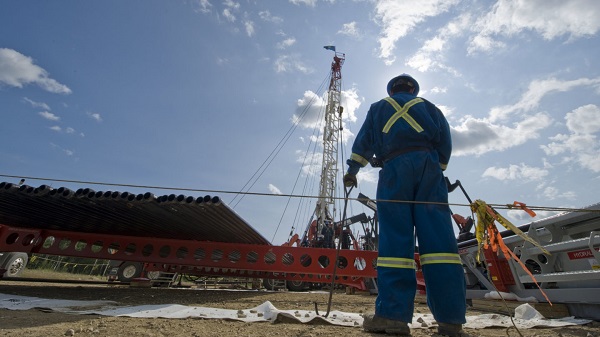
 Canadian Energy Centre1 day ago
Canadian Energy Centre1 day agoIgnoring the global picture and making Canadians poorer: Energy and economic leaders on Ottawa’s oil and gas emissions cap
-

 Energy1 day ago
Energy1 day agoFederal government’s ’carbon-free’ electricity target far-fetched
-
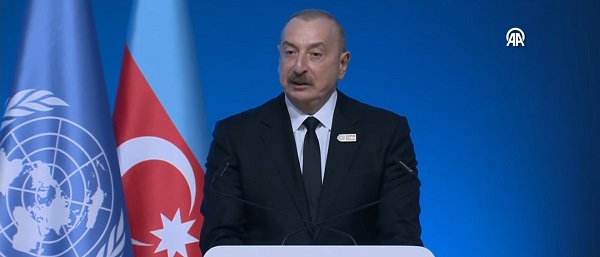
 Daily Caller1 day ago
Daily Caller1 day agoPresident Of Country Hosting UN Climate Summit Defends Fossil Fuels, Slams Media And Green ‘Hypocrisy’
-

 Disaster2 days ago
Disaster2 days agoFEMA skipping homes in disaster areas lures calls for federal probe
-

 Alberta1 day ago
Alberta1 day agoNew red tape reporting website will help ramp up housing construction in Alberta
-
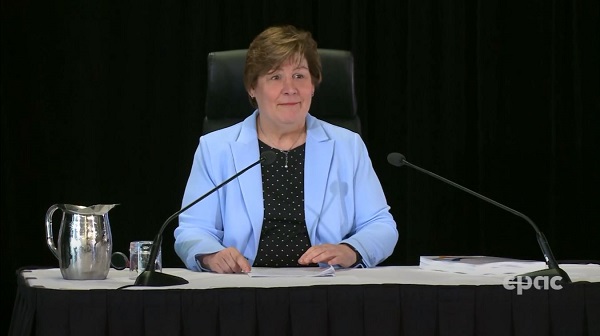
 espionage1 day ago
espionage1 day agoBreaking: Hogue Commission Will Hear From New Safety-Protected Witnesses On PRC Targeting of Chinese Candidates







